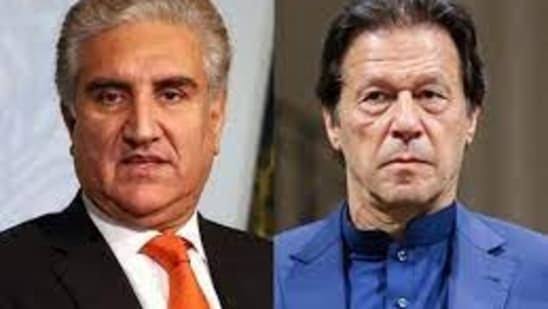Islamabad: The Pakistan government has booked all major Pakistan Tehreek-e-Insaf (PTI) leaders including its chairman Imran Khan, as well as some civil society activists for sedition, Pakistan-based Business Recorder newspaper reported.
According to Business Recorder, pronouncing criticism of a government or its subordinate organisations as sedition, the crime of betraying one’s state, is inconceivable in any functioning democracy.
In Pakistan, however, a colonial-era law introduced in 1860 to criminalise dissent to control the ‘subjects’ stayed on the statute book post-independence until this past March 30, when hearing a public interest petition Justice Shahid Karim of the Lahore High Court (LHC) issued a short order, striking down Section 124-A of the Pakistan Penal Code (PPC) that said “whosoever by words, either spoken or by signs, or otherwise, attempts to bring into hatred or contempt the federal or provincial government” would be punishable with imprisonment for life or up to three years along with fine, Business Recorder reported.
The judge in his 48-page judgment had to explain why loyalty to the State has to be distinguished from loyalty to the government.
Taking exception to three keywords, contempt, hatred and disaffection, used in section 124-A, he wrote: “As human beings, we are all susceptible to showing such emotions at some point or the other.”
The judge observed that the impugned section of the PPC demands allegiance and loyalty by all opposition parties, their members, the citizens and members of the press towards the federal or provincial governments of the day.
This means any political opponent (of the government) or a citizen having loyalty to a different group will, by necessary implication, be disloyal to the federal or provincial government in power, which “is antithetical to the very concept of democracy and constitutionalism”.
Democratically- elected governments yet intentionally or unintentionally continue to retain this draconian provision. Justice Karim also pointed out that section 124-A in its present form went against Article 19 of the Constitution related to press freedom that, he asserted, must not be abridged on the misplaced notion that the government of the day can suppress freedom of expression at will, Business Recorder reported.
Some underhand measures are employed to prevent the media from questioning the policies of the government as well as certain other quarters.

















